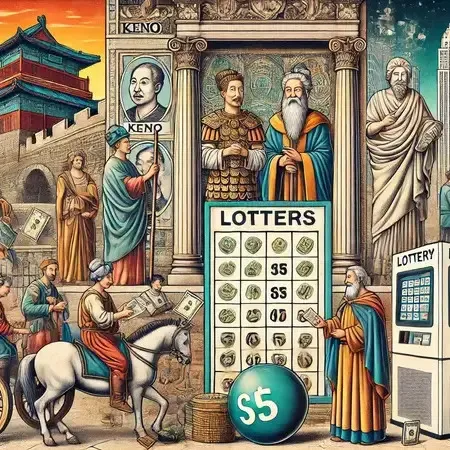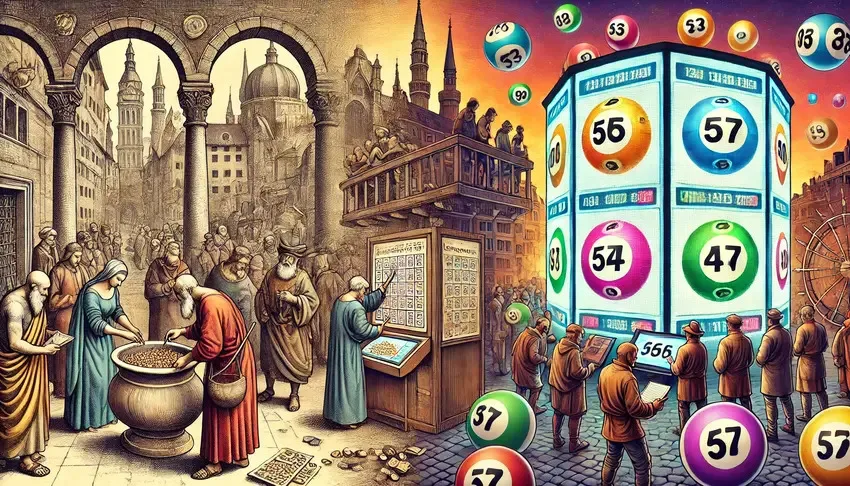
History of Lotteries: From Antiquity to the Present Day
Lotteries have captivated humanity for millennia, offering the tantalizing prospect of fortune from the simplest of activities. As society has evolved, so too has the role and function of lotteries, from funding civic projects to creating national wealth. Let’s take a journey through the history of lotteries, exploring how they have transformed over time.
Lotteries in Ancient Civilisations
The concept of lotteries dates back to ancient civilizations. One of the earliest recorded instances comes from the Han Dynasty in China (205–187 BC). Here, keno-like games were used to fund significant state projects, including the construction of the Great Wall of China. Ancient Rome also saw lotteries employed by emperors, such as Augustus Caesar, who used them as a means to distribute gifts during public feasts. Though primitive by today’s standards, these ancient lotteries laid the groundwork for the modern systems we recognize today.
Medieval Lotteries in Europe
The resurgence of lotteries in Europe during the medieval period marked the beginning of organized games with regulated prizes. One of the earliest known European lotteries was held in the 15th century in the Low Countries, modern-day Belgium and the Netherlands, where towns raised money to fortify their defenses or assist the poor. By the 16th century, these lotteries had spread to other parts of Europe, including Italy and England, where Queen Elizabeth I sponsored the first national lottery in 1569 to raise funds for repairing the country’s harbors.
Lotteries in Colonial America
Lotteries played a significant role in the development of colonial America. They were used as a tool for public works, funding infrastructure such as roads, bridges, and libraries. Notably, the American Revolution saw lotteries used to support the war effort. Many prestigious universities, including Harvard, Yale, and Princeton, were partially funded by proceeds from these lotteries, making them an essential element in shaping the nation’s early infrastructure.

Development of Lotteries in the 19th Century
By the 19th century, lotteries had expanded across the world, but they were not without controversy. Scandals and fraudulent schemes led to the banning of lotteries in several countries, including the United States, where a widespread backlash resulted in their prohibition in many states. However, some governments, recognizing the significant revenue that lotteries could generate, began to take control of their operations, introducing government-regulated lotteries. This shift helped restore public trust in the fairness and legitimacy of the lottery system.
Modern Lotteries in the 20th and 21st Century
In the 20th century, lotteries saw a resurgence as governments began using them as a reliable source of revenue without raising taxes. This period also marked the advent of large-scale national lotteries. In the United States, for instance, the introduction of Powerball and Mega Millions created multi-state lotteries with record-breaking jackpots. European nations followed suit, with games such as EuroMillions capturing widespread attention. Technological advancements further modernized lotteries, allowing online participation and transforming how tickets are sold and prizes claimed.
The Future of Lotteries
As we move further into the digital age, lotteries continue to evolve. Blockchain technology and cryptocurrencies are being explored to ensure transparency and security in lottery draws. Additionally, artificial intelligence and machine learning are being used to analyze player preferences and enhance the lottery experience. With these innovations on the horizon, the future of lotteries promises to be even more exciting, accessible, and secure.
From their ancient origins to their present-day prominence, lotteries have been a constant in human society, adapting to changing times while retaining their core allure. As technology continues to develop, the lottery industry is set to evolve further, offering new and innovative ways for people to participate in the chance to win life-changing prizes.
